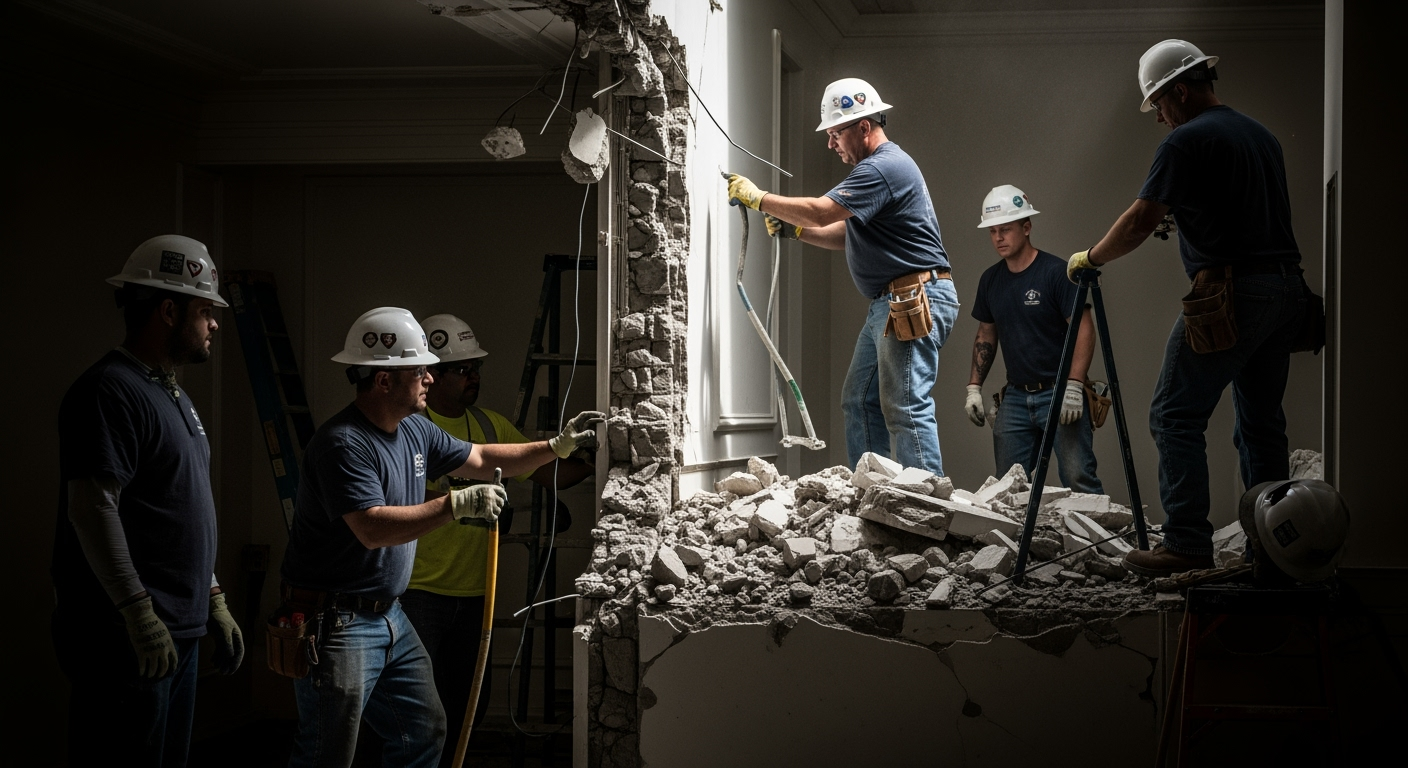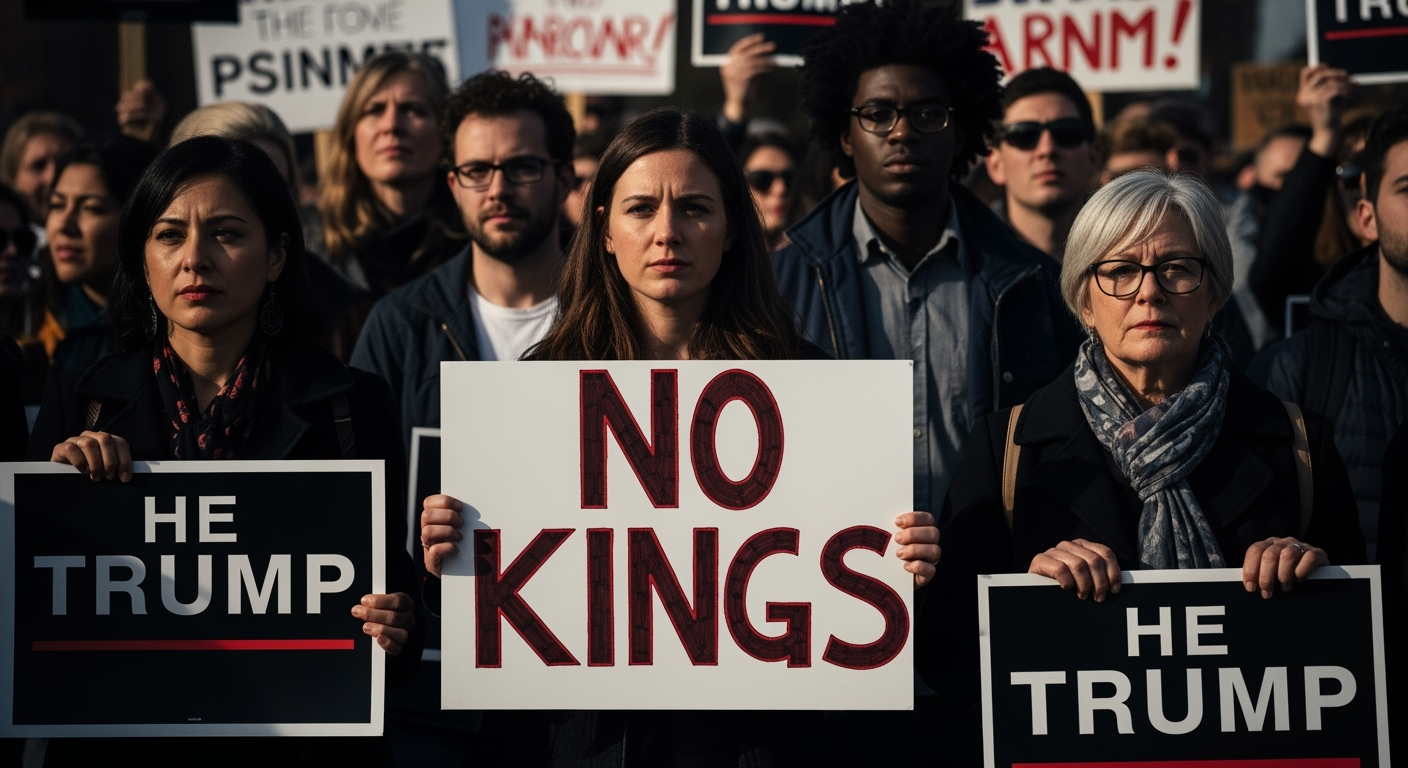Related Articles

Brazil Greenlights Offshore Oil Drilling Near Amazon Mouth Amid Environmental Outcry

Historic White House East Wing Demolition Underway for New Ballroom





Across the United States, millions of citizens are taking to the streets today, October 18, 2025, in a sprawling, nationwide demonstration dubbed the "No Kings" protests. This latest wave of mass mobilization represents a forceful rejection of what organizers describe as increasingly authoritarian policies and a dangerous erosion of democratic norms under the current administration. Coming just four months after a historic June 14 "No Kings Day" that saw upwards of five million participants, these protests underscore a deepening societal divide and a widespread determination to push back against perceived executive overreach.
The movement, a robust coalition of more than 200 progressive organizations, labor unions, and grassroots groups, has coalesced around the powerful central message that "America has no kings." This slogan directly challenges what protesters view as President Donald Trump's monarchical tendencies and a governance style they believe undermines the foundational principles of American democracy. With events planned in over 2,700 locations across all 50 states and even internationally, today's demonstrations are poised to reaffirm the potent capacity of collective action in the face of political dissatisfaction.
The genesis of the "No Kings" movement can be traced to a collective unease that solidified into organized resistance. Spearheaded by groups like Indivisible and the 50501 Movement, the latter deriving its name from the ambition of organizing "50 states, 50 protests, one movement," the protests aim to counter perceived democratic backsliding in the United States. The first major coordinated "No Kings" event occurred on June 14, 2025, strategically coinciding with President Trump's 79th birthday and the U.S. Army's 250th Anniversary Parade.
Organizers deliberately chose this date to draw a stark contrast between what they termed an "attempt at a coronation" – referring to the military parade critics argued politicized the armed forces – and the nation's democratic heritage. Unlike previous large-scale protests that often centered on Washington D.C., the June 14 demonstrations were intentionally distributed, taking place in over 2,100 cities and towns nationwide. This decentralized approach, which saw Philadelphia host a flagship event rather than the nation's capital, aimed to emphasize that dissent was widespread and deeply rooted within communities across the country. The sheer scale of participation, estimated by organizers and data journalists to be between four and six million people, marked it as one of the largest single-day protests in U.S. history. Today's events on October 18, planned to exceed that reach with rallies in more locations, indicate a sustained and growing resolve among the movement's participants.
At the heart of the "No Kings" protests lies a profound concern over the direction of American governance. Demonstrators cite a litany of grievances, including what they characterize as authoritarian policies, "billionaire-first politics," and the militarization of civil society. Key issues fueling the protests include federal immigration crackdowns, the deployment of federal forces to American cities, alleged overreach of executive power, government shutdowns, and perceived efforts to curtail access to healthcare and environmental protections.
The very name "No Kings" serves as a powerful symbolic anchor, directly referencing the American Revolution and the nation's founding rejection of monarchical rule. Protesters equate President Trump's rhetoric and actions, including his own past statements about being a "king," to a dangerous deviation from constitutional principles. As one organizer articulated, "We didn't want kings then, and we don't want kings now." This sentiment resonates deeply with those who believe the executive branch is attempting to consolidate unchecked power and defy legal or democratic restraints. The movement consistently emphasizes a commitment to non-violent action, with organizers training tens of thousands in de-escalation techniques and prohibiting weapons at rallies to ensure peaceful demonstrations.
The organizational strength of the "No Kings" movement stems from an unusually broad and diverse coalition. Major progressive advocacy groups such as the American Civil Liberties Union (ACLU), MoveOn, and Public Citizen stand alongside a formidable array of labor unions, including the American Federation of Teachers (AFT) and the Service Employees International Union (SEIU). Other key partners include the Human Rights Campaign, United We Dream, and the League of Conservation Voters, reflecting a wide spectrum of concerns that coalesce under the anti-authoritarian banner.
This extensive network has facilitated a remarkably decentralized model of protest. Rather than focusing solely on large metropolitan centers, rallies are taking place in small towns and rural communities across all 50 states, demonstrating that opposition to the administration's policies is not confined to urban hubs. International solidarity events, operating under names like "No Dictators" or "No Tyrants," have also been observed in other countries, particularly those with a history of constitutional monarchy, amplifying the global resonance of the movement's message. The widespread participation of labor unions is particularly notable, with leaders like Randi Weingarten of the AFT emphasizing that "a voice in democracy creates power for regular folks."
The scale and nature of the "No Kings" protests have elicited sharp reactions from both sides of the political spectrum, further highlighting America's intensifying political divisions. Republican leaders and the Trump administration have largely dismissed the demonstrations, often characterizing them as "hate America" rallies or associating them with extremist elements. House Speaker Mike Johnson, for instance, suggested the protests would be filled with "Hamas supporters," "antifa types," and "Marxists," arguing that Democrats were beholden to a "terrorist wing" of their party. President Trump himself has stated, "I'm not a king," pushing back against the core premise of the protests.
In response to the protests and other demonstrations, particularly those concerning immigration enforcement, the Trump administration and some Republican state leaders have deployed federal and state forces. Texas Governor Greg Abbott, for example, ordered the deployment of thousands of National Guard troops and state police in anticipation of "No Kings" protests in Austin. In Los Angeles, the deployment of Marines and National Guard troops in response to immigration-related protests led to clashes and calls from local mayors for their withdrawal. Organizers of the "No Kings" movement, however, have embraced the criticism from Republicans, with Indivisible co-founder Ezra Levin remarking that such attacks amounted to "free publicity" and demonstrated the administration's fear of "mass peaceful protests."
As the "No Kings" protests unfold today, they represent more than just a momentary surge of dissent; they signify an ongoing, widespread struggle over the fundamental character of American democracy. Millions of individuals, united by a shared apprehension regarding perceived authoritarian trends, are actively asserting their belief that constitutional limits and the will of the people must prevail over any attempts at unilateral rule.
The sustained mobilization, the diverse coalition of participants, and the clear articulation of grievances paint a vivid picture of a populace deeply engaged in shaping its political future. While the long-term impact of these protests remains to be seen, their sheer scale and persistent message serve as a powerful testament to the enduring American ideal that, in this republic, there are indeed "no kings."